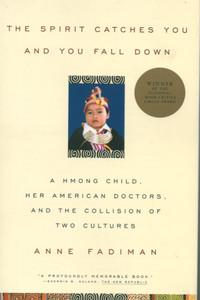 Labour MP David Chaytor claimed for a mortgage he already paid off. He says it was an error, albeit one that took eleven months to notice. And haven't we all taken a sabbatical from our outstanding debts now and again?
Labour MP David Chaytor claimed for a mortgage he already paid off. He says it was an error, albeit one that took eleven months to notice. And haven't we all taken a sabbatical from our outstanding debts now and again?The New York Times today offered its summary of the British scandal involving a raft of dubious expenses claimed by Members of Parliament. The story has been simmering away for days in the UK, furiously bubbling over each day with every new revelation of incredulous reimbursements from the Daily Telegraph. The initial story ran two weeks ago and targeted government, i.e. Labour Party, MPs. The Telegraph has cleverly kept pole position on the story by waiting through a few days of outrage after each story before publishing more expenses claimed. Conservative and later Liberal Democrats each received time under the media klieg lights, and now the country’s entire political class is sweating uncomfortably.
This post does not mean to offer pointed opinions about British political behavior. That can be saved for another time. Rather, the ongoing story points up the character of British newspapers and the way developments in the UK are treated by American publications.
The New York Times usually waits on the sidelines before alerting its readers to the latest hubbub from media across the Atlantic, whether in Britain or in continental Europe. Generally, American newspapers only offer daily coverage for stories within the US unless the international matter obviously touches on the country’s interests. Maybe this represents another example of American ethnocentricity, though recent New York Times coverage of the endgame to Sri Lanka’s civil war offers a meritorious exception. Mostly, the delay ensures that precious column inches are not wasted on piffle from self-important news outlets, but with yesterday's resignation of House Speaker Michael Martin the story has produced substantive results. A late entry from the New York Times tends not to add information to the story but attempts to summarize the matter from a deliberately outside perspective, often as a way to call attention to a larger national debate or to play with cultural stereotypes. The editors have sometimes sought these ends even when the actual substance of the story might be in doubt.
These summaries from abroad can offer an outsider’s perspective, but the clamor created by the MP’s expenses story demonstrates the ability of the UK’s media diversity to stir up the national consciousness. Britain has a large number of so-called national newspapers, papers available in every city in the same edition. These include several taste-bating “Red Tops” specializing in tabloid journalism and titillating photography and serious-minded broadsheets. The broadsheets target readers along different parts of the political spectrum with the Telegraph on the right and the Independent on the left. Generally, all these papers, even the Red Tops, all report on the same major events, but they diverge in how each one values an individual story or which facts are highlighted. All the other publishers scrambled to headline the scoop of a business and ideological rival because the story was accurate, timely, and compelling. The United States, by contrast, has only USA Today as a national newspaper. The Washington Post and the New York Times, of course, publish for an effectively nationwide audience, but the collection formed by these and even a few lesser big-city banners hardly creates the diversity of viewpoints that somewhat paradoxically enhances the moral and investigative sensitivities of print journalism.
The editorial agendas at each newspaper and the concerns of their target readerships shape the day’s headlines and the presentation of stories. At the same time, a publication must maintain credibility as a worthwhile news venture if it hopes to shift public opinion towards its ideological perspective or sustain its profits. Without verifiable facts and timely reporting readers will look elsewhere for information, and the overall mission will fail. American cable news might actually benefit from more openly espousing any political leanings so as to diminish the group–think that requires every channel to report live on celebrity court appearances or searches for missing white girls. Of course, the British media also endlessly reports on searches for blonde children.
Update: The New York Times made its summary even more comprehensive on Sunday, all the way back to 1832.







.jpg)
2 comments:
of course, as americans, we can't read, so it doesn't matter. that's why we love our blatantly politically biased national television news outlets!
If we can't read, we sure can yell-on-TV good! And we can cable-news-graphics good, too!
Post a Comment